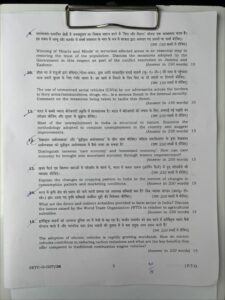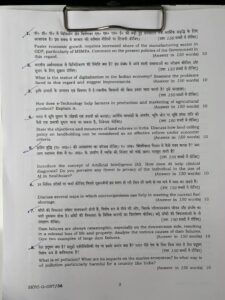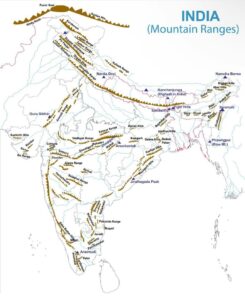The UPSC (Union Public Service Commission) Civil Services Examination comprises three stages, and the General Studies (GS) papers are a crucial part of both the Preliminary and Main Examinations. Here’s an overview of UPSC GS Paper I, GS Paper II (CSAT), and GS Papers III, IV (optional subjects) for the Main Examination:




UPSC GS Paper I (Preliminary Examination):
1. Current Affairs:
- Emphasis on national and international events.
- Covers political, economic, social, environmental, and cultural aspects.
2. Indian History and National Movement:
- Ancient, medieval, and modern Indian history.
- Significant events and personalities in the Indian National Movement.
3. Indian and World Geography:
- Physical, social, economic geography of India and the world.
- Environmental and ecological concepts.
4. Indian Polity and Governance:
- Constitution of India, political system, Panchayati Raj, and urban local governance.
- Public policy and rights issues.
5. Economic and Social Development:
- Sustainable development, poverty, demographics, and social sector initiatives.
- Inclusive growth, major sectors of the economy.
6. General Science:
- Physics, chemistry, biology, and advancements in science and technology.
- Relevance of science in daily life.
UPSC GS Paper II (Preliminary Examination) – CSAT (Civil Services Aptitude Test):

1. Comprehension:
- Reading and understanding passages.
- Answering questions based on the information provided.
2. Interpersonal Skills, Communication, and Logical Reasoning:
- Analytical and logical reasoning skills.
- Decision-making and problem-solving.
3. Quantitative Aptitude:
- Basic numerical and mathematical skills.
- Data interpretation and analysis.
4. General Mental Ability:
- Basic cognitive abilities.
- Analytical and problem-solving skills.
5. English Language Comprehension Skills:
- Understanding and answering questions based on English passages.
- Grammar and language skills.
UPSC GS Paper III (Main Examination):
1. Technology, Economic Development, Bio-diversity, Environment, Security, and Disaster Management:
- Economic development and planning.
- Environmental conservation and climate change.
- Internal and external security issues.
2. Ethics, Integrity, and Aptitude:
- Essence, determinants, and consequences of ethics in human actions.
- Attitude, aptitude, emotional intelligence.
3. Optional Subject Paper I:
- Questions based on the chosen optional subject (e.g., History, Geography, Public Administration, etc.).
- In-depth knowledge and analysis of the subject.
4. Optional Subject Paper II:
- Continuation of questions based on the chosen optional subject.
- Advanced and specific concepts within the chosen subject.
UPSC GS Paper IV (Main Examination):
1. Ethics, Integrity, and Aptitude:
- Case studies on ethical dilemmas.
- Ethics in governance and public administration.
2. Optional Subject Paper III:
- Specific to the chosen optional subject.
- In-depth analysis and critical evaluation.
3. Optional Subject Paper IV:
- Continuation of questions based on the chosen optional subject.
- Specialized and nuanced understanding.
The Main Examination includes the Optional Subject Papers III and IV, which are specific to the chosen optional subject by the candidate. These subjects can vary widely based on individual preferences and expertise.
In summary, the UPSC General Studies papers cover a broad spectrum of subjects, testing candidates on their knowledge, understanding, and analytical abilities across various disciplines. It is essential for aspirants to have a comprehensive and integrated approach to prepare for these papers.
For more information click here UPSC http://upsc.gov.in